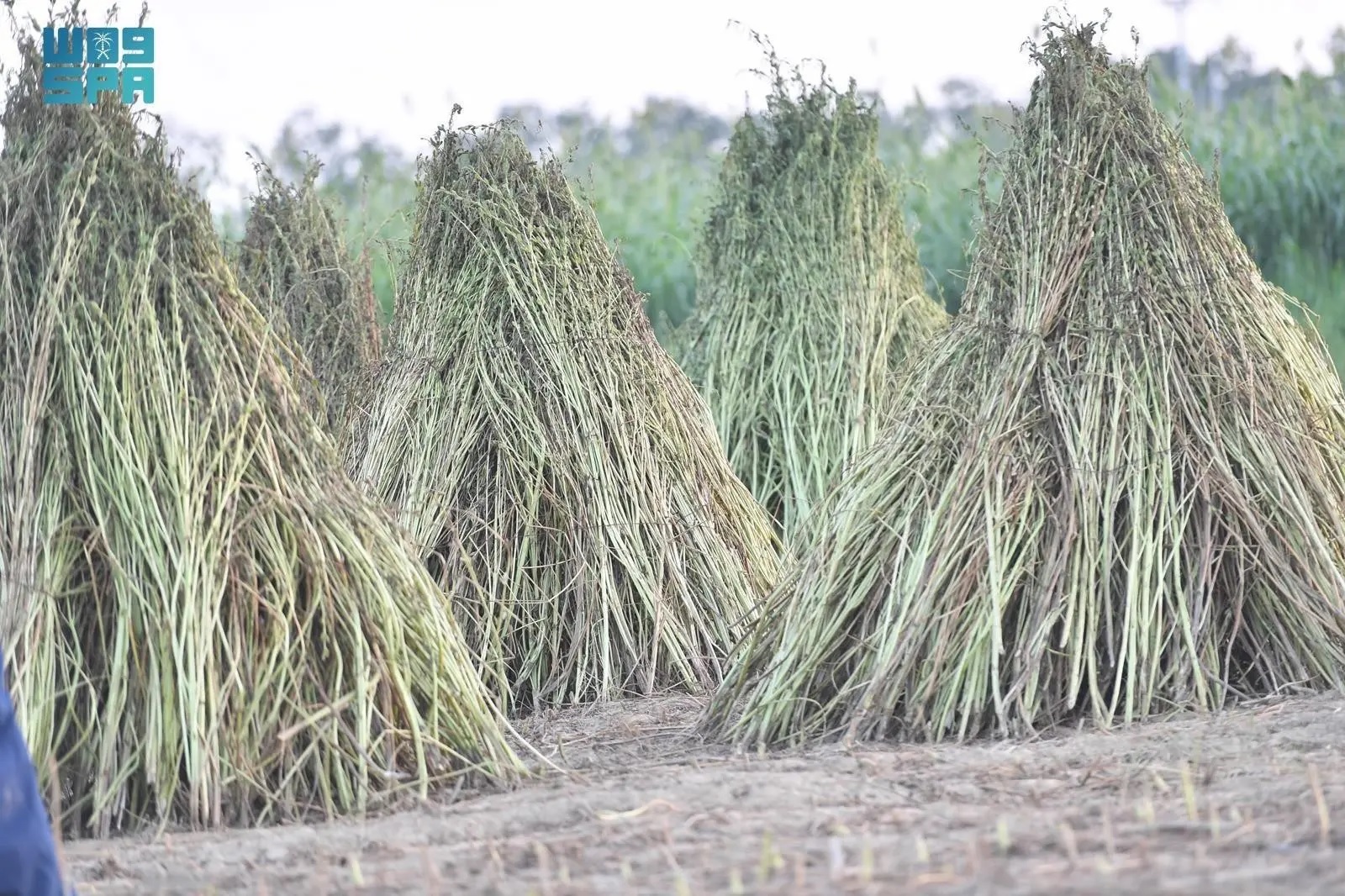
Sesame Cultivation in Jazan: Living Symbol of Heritage, Vital Economic Pillar
The agricultural sector in Jazan is a vital economic and social pillar, leveraging unique natural resources, such as fertile soil and abundant water, to cultivate a wide range of crops efficiently and at minimal cost. Jazan serves as a distinctive model that blends traditional agriculture with modern technologies.
Among its flourishing crops, sesame stands out as a living symbol of the region's rich agricultural heritage. This "golden plant," which has connected people to the soil since ancient times, is cultivated across approximately 6,400 hectares. The 90-to-120-day cultivation cycle begins with traditional planting methods and culminates in a picturesque, meter-high plant.
The harvest process is characterized by collective effort and tradition, with locals gathering to separate, clean, and pack the seeds. Jazan's annual sesame production exceeds 6,422,000 kilograms, underscoring the significant economic importance of this heritage.
More than just a crop, sesame remains the "white gold of the land," a story of generosity and authenticity passed down through generations.








